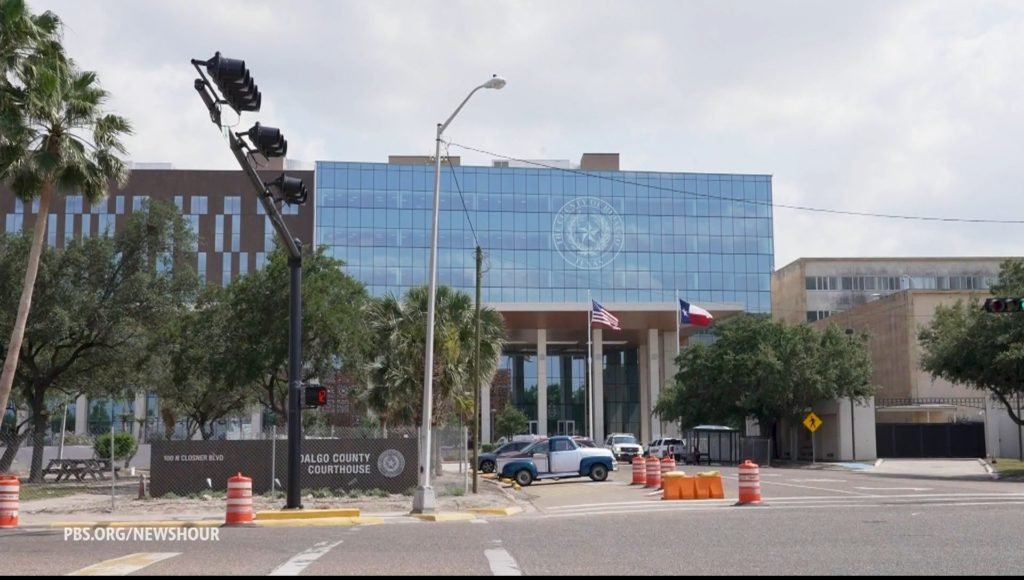Political Shifts in the Rio Grande Valley: A Community Divided
The 2024 presidential election showcased significant political realignments across the United States, particularly in the Rio Grande Valley of Texas. Traditionally seen as a Democratic stronghold, this heavily Hispanic region switched to Republican support for the first time in generations, indicating deep-seated changes in voter sentiment and community dynamics.
Socioeconomic Struggles Drive Political Change
In communities facing economic hardship, the urgency of daily life can sway political affiliations dramatically. Luz Ramos, a 28-year-old donut shop owner, epitomized this shift. Having never voted before, she felt compelled to engage in the political process as her community struggled to afford basic necessities such as milk, eggs, and tortillas. “Just affording basic necessities was a big thing,” Ramos noted, reflecting a sentiment widely shared among her peers.
As her shop teetered on the brink of closure, Ramos introduced novelty donuts decorated with the names of both Donald Trump and Kamala Harris. Her experience showcased the stark reality of the election: “I only sold one Kamala donut, but I refilled the Trump donuts three to five times that day.” This anecdote illustrates how deeply political allegiance can impact local commerce and community identity.
The Impact of Trump’s Presidency
Trump’s election victory resonated strongly in the Rio Grande Valley, with all four counties experiencing a shift toward Republican support—a departure from the area’s historical voting patterns that favored Democrats since the 1920s. Such a change not only redefined the political landscape but also laid bare divisions within families and friendships. Ramos articulated the consequences of her political choices: receiving backlash, hostile comments, and even death threats for her support of Trump.
In many cases, political discussions have become so contentious that they are avoided entirely among family members and friends. This reflects a broader trend where political affiliation increasingly determines social relationships and community cohesion.
Generational Divides in Political Ideology
The younger generation, including figures like Alexis Uscanga, has also played a pivotal role in shifting the ideological landscape. Uscanga, once raised in a Democratic household, turned toward Republicanism as he recognized a pattern of stagnation in local governance. His frustration with the lack of opportunities drove him to advocate for change, even at a personal cost. “I was politically silent until I ran for student government, then the backlash began,” he explained, shedding light on the social ramifications of expressing conservative viewpoints in a predominantly liberal environment.
The reflections from Uscanga and others, such as Hidalgo County Judge Richard Cortez, underscore a growing discontent with both major political parties. Cortez pointed out several failures, including economic stagnation and ineffective handling of social issues, leading to disillusionment among constituents.
Familial Divisions: A Case Study of the Howells
The story of the Howell family illustrates the generational and ideological rifts further deepening in the valley. Jacob Howell, a long-time Democrat, voted for Trump in the recent election, while his son, Skyler, remained loyal to the Democratic ticket. This division is symptomatic of a larger trend where political affiliations have strained familial bonds.
Skyler expressed concern about the increasingly hostile rhetoric in politics, saying, “We aren’t heading in the right direction,” reflecting an awareness of the emotional toll political discourse can take. Conversely, Jacob argued for Trump’s transparency and the importance of straightforward communication, emphasizing how he believes this resonates with the public more than traditional political discourse.
Conclusion: A Community at a Crossroads
The political landscape of the Rio Grande Valley is emblematic of broader national trends, with communities grappling with economic challenges, shifting ideological perspectives, and personal relationships testing the boundaries of political debate. As divisions deepen, it becomes increasingly necessary for individuals to find common ground and engage in constructive dialogue, turning away from adversarial politics towards understanding and cooperation.
The journey of the Rio Grande Valley from a staunch Democratic stronghold to a politically diverse community underscores the dynamism of American politics. Understanding these profound shifts is essential for anyone looking to grasp the complexities of contemporary voter sentiment and community identity in the United States.
For further information on the dynamics of political shifts, consider exploring articles from the Pew Research Center or insights from The Brookings Institution.


